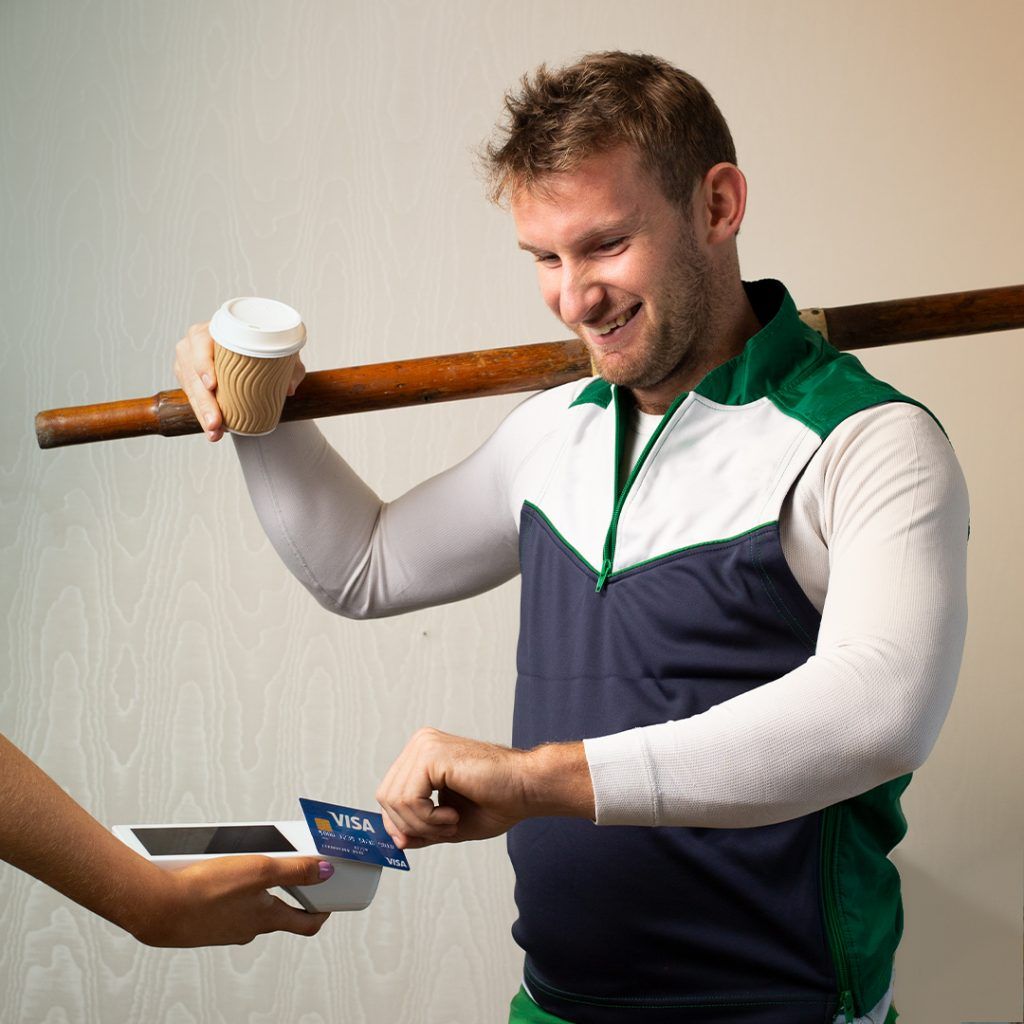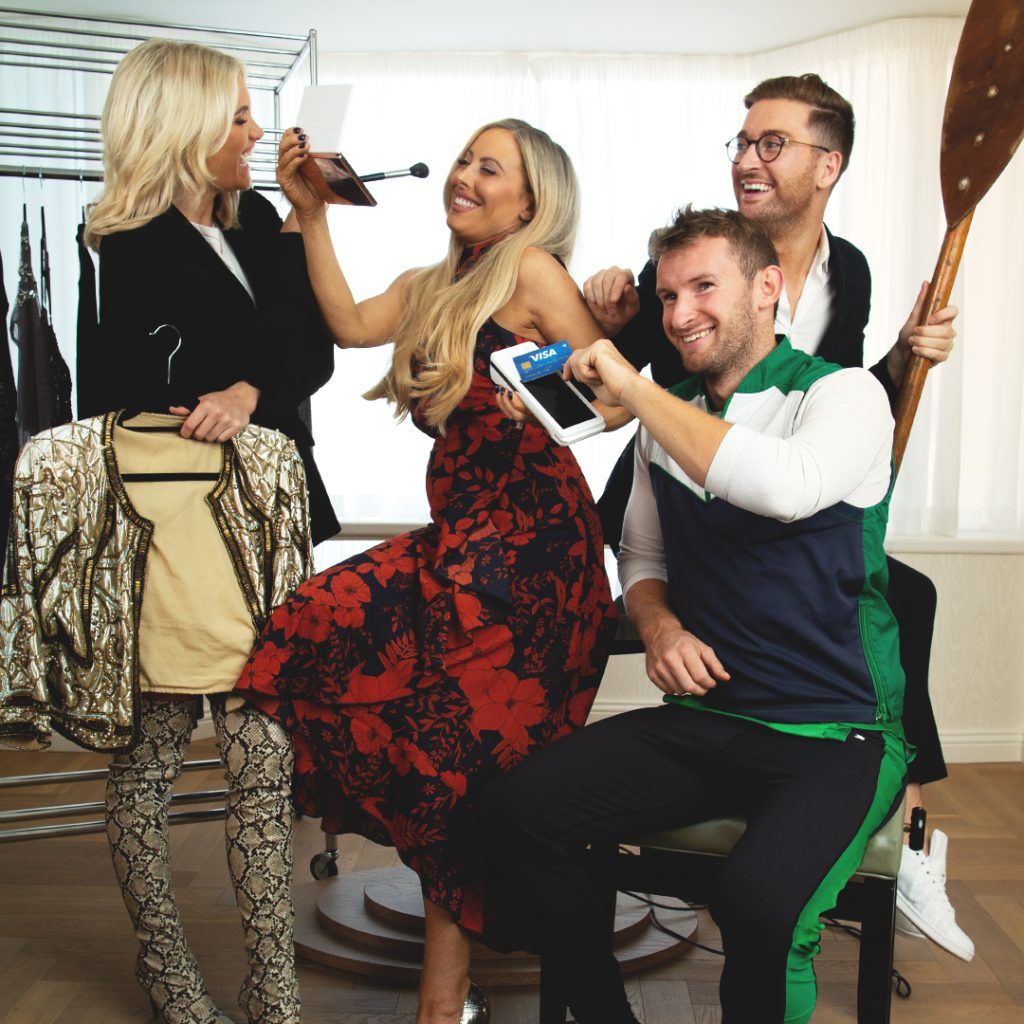

Share
31st October 2018
12:54pm GMT

"It's a funny balancing act that we're trying to pull off," said O'Donovan. "When we're doing an awful lot of training we need to do an awful lot of recovery and anything that is going to consume energy is going to take away from recovery for training. "The more recovery we can do, the more training we can do and the more training we do the more recovery we need. Trying to get a full-time job is a bit impractical because even on the training days alone it's very challenging. We spend an awful lot of time travelling but in the summer we're travelling nearly every three weeks. "We'd do a three week camp before the world championships and then we're spending 10 days at the world championship regatta course so that's nearly a month for that alone so to try and hold a full-time job down would be very hard but I'm doing some stuff now with David McHugh from Lineup Sports to help me with a bit of work experience but I'm really open to anything."Their success at the Rio Olympics has paved the way for more sponsorship opportunities and Gary has essentially been able to make the transition from student athlete to full-time athlete.
 The brothers are now getting their best results in the lab, as well as on the water, but Gary attributes their improvements in both categories to what they have learned from others over the last two years as opposed to any changes that may have occurred in their own lives.
The brothers are now getting their best results in the lab, as well as on the water, but Gary attributes their improvements in both categories to what they have learned from others over the last two years as opposed to any changes that may have occurred in their own lives.
"The difference for us was just the knowledge and understanding of what we're doing," he adds. "From one day to the next, every single day of the year, we're just getting better at the training. Making it more efficient, getting a better understanding of what's the right training to do at the right time at the right part of the year and even from one day to the next what's the best way to recover? What's the best thing to eat after a training session? "If you're doing weights what's the best way to recover from weights? What's the best way to recover from weights to fit it in to another session? If we do a weights session on a Wednesday it's going to be really hard to do an intense training session on the Thursday but if we time it properly we can get a more efficient workout and we're getting better at putting the whole lot together. "Every single day, every single training session, the whole picture is getting better and better each year."Part of that process has been through consultation with others. Both Paul and Gary went travelling to Norway, New Zealand and Australia last year and were able to see how some of rowing's top athletes were able to train. They conferred with the New Zealand Men’s Double Scull team, they trained at the Norwegian national centre, they raced in the New Zealand national championships and they trained with former Olympian and ex-Skibbereen stalwart Richard Coakley. They talk to nutritionists, strength and conditioning coaches and twice a year they work with a biomechanist who helps rig up their boat with wires to measure the angle that the blade is hitting the water, his peak force, the combined peak force of both him and Paul, the angles from catch to finish and stroke length.
 Gary attributes their career best form to the conversations they have had with various rowers around the world, the different adjustments they've made within their own camp and plain and simple repetition, but for all the advancements and improvements around them, a lot of the progress they've made still stems from discipline.
Gary attributes their career best form to the conversations they have had with various rowers around the world, the different adjustments they've made within their own camp and plain and simple repetition, but for all the advancements and improvements around them, a lot of the progress they've made still stems from discipline.
"We take what we can from it but we don't hang our hat off it," added Gary of the resources available to him and his brother. "The biomechanist can look at something and he might say to change this and we hate it and we say that feels terrible and we go back to what in theory is off the charts. "We don't have access to it all the time, it is great, but we don't get bogged down with the nutritionist, the psychologist, the S&C coach, the biomechanist.... how many 'ists' are there out there that want to come in and help you? "You could do all of that in the world but if you're not going out there and doing 200 kilometres a week then the other things are no good to you. "For us, once we do 200 kilometres then we can look at how we can do it better because they're the fundamentals. It's roughly about 8000 kilometres a year. If you're doing 6000 kilometres a year you're probably not going to win a medal. If you're doing 8000 you're going to give yourself a good chance but to do 8000 is damn hard and you have to do everything right outside of the boat. "It has to be the right 8000 kilometres too. You have to do the right training sessions, the hard sessions when you're supposed to do the hard sessions and the long, boring non-intense sessions when you're supposed to do them, the sprint sessions, so you have to do everything right. "If you have the eating right, the angles right, the technique right and everytihng right but you're only doing a 100 kilometres a week you're not much good. "The most important thing is the rowing."Rowing was the most important thing for Gary O'Donovan in 2001 and 17 years later and it's still a huge part of his life, even if he's opened more doors for himself away from the water through his success in the boat. The structures and science surrounding their camp is ever evolving but the focus and drive remains the same. The workload is similar, Paul and Gary just got smarter.
Visa has today announced #TapIntoIreland 2, a follower-led road trip across Ireland that will see four of Ireland’s top digital influencers and celebrities take part in an action-packed three-day journey across the nation.
After the success of last year’s #TapIntoIreland road trip, which saw over one million people engage with the campaign, the influencers will be visiting an array of Irish shops, restaurants and bars hand-picked by their social media followers and will pay with Visa contactless throughout their trip.
This year’s group, who have over 700,000 social media followers combined, includes fashion stars Niamh Cullen and Rob Kenny, beauty entrepreneur Lisa Jordan and Irish rowing Olympian Gary O’Donovan. The four will hit the road together on 15th November for their three-day trip.
This trip celebrates the increasing number of places that accept contactless payments across Ireland, which continue to grow in popularity thanks to the ease and security of contactless.
Explore more on these topics:

World of Sports - SportsJOE.ie | SportsJOE
world of sport